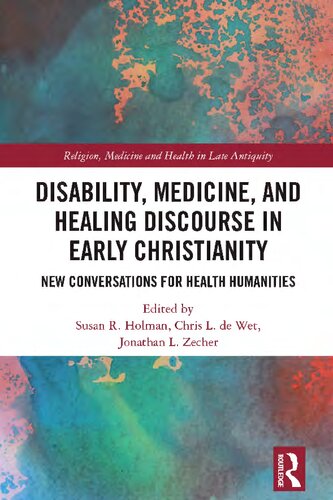

Most ebook files are in PDF format, so you can easily read them using various software such as Foxit Reader or directly on the Google Chrome browser.
Some ebook files are released by publishers in other formats such as .awz, .mobi, .epub, .fb2, etc. You may need to install specific software to read these formats on mobile/PC, such as Calibre.
Please read the tutorial at this link: https://ebookbell.com/faq
We offer FREE conversion to the popular formats you request; however, this may take some time. Therefore, right after payment, please email us, and we will try to provide the service as quickly as possible.
For some exceptional file formats or broken links (if any), please refrain from opening any disputes. Instead, email us first, and we will try to assist within a maximum of 6 hours.
EbookBell Team

4.8
24 reviewsUsing contemporary theories drawn from health humanities, this volume analyses the nature and effects of disability, medicine, and health discourse in a variety of early Christian literature.
In recent years, the "medical turn" in early Christian studies has developed a robust literature around health, disability, and medicine, and the health humanities have made critical interventions in modern conversations around the aims of health and the nature of healthcare. Considering these developments, it has become clear that early Christian texts and ideas have much to offer modern conversations, and that these texts are illuminated using theoretical lenses drawn from modern medicine and public health. The chapters in this book explore different facets of early Christian engagement with medicine, either in itself or as metaphor and material for theological reflections on human impairment, restoration, and flourishing. Through its focus on late antique religious texts, the book raises questions around the social, rather than biological, aspects of illness and diminishment as a human experience, as well as the strategies by which that experience is navigated. The result is an innovative and timely intervention in the study of health and healthcare that bridges current divides between historical studies and contemporary issues.
Taken together, the book offers a prismatic conversation of perspectives on aspects of care at the heart of societal and individual "wellness" today, inviting readers to meet or revisit patristic texts as tracings across a map of embodied identity, dissonance, and corporal care. It is a fascinating resource for anyone working on ancient medicine and health, or the social worlds of early Christianity.